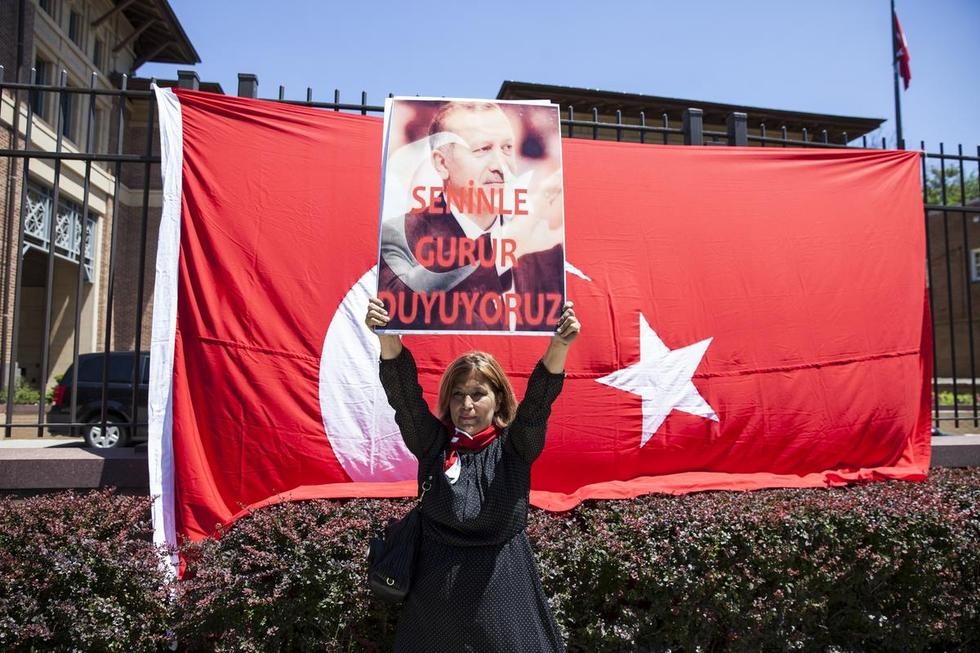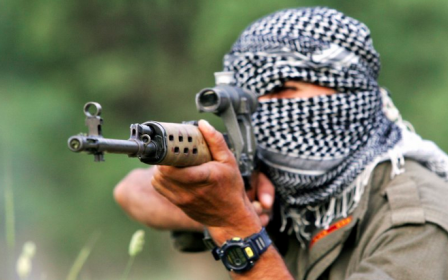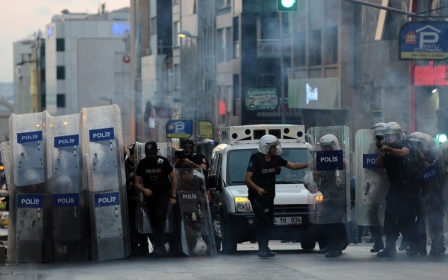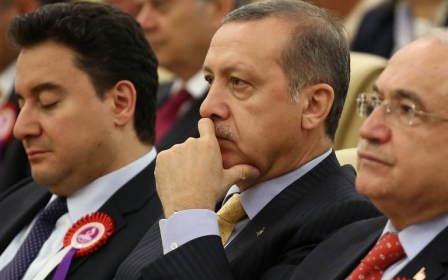2 Turkish soldiers killed near Diyarbakir as tensions mount

A car bomb killed two Turkish soldiers in southeast Turkey as tensions between the Kurdistan Workers Party (PKK) and the Turkish government continued to rise, officials said on Sunday.
The car bomb went off as the soldiers were travelling on a road in the Lice district of Diyarbakir province late Saturday, the statement from the local governor's office said.
"Two of our personnel were killed in the heinous attack, four were wounded," said the statement.
There was no immediate claim of responsibility but the blast comes as Turkey carried out a third wave of aerial attacks against PKK positions in neighbouring Iraq as well as fresh strikes against the Islamic State group in Syria.
"We have approved the third wave of airstrikes in Syria [against ISIL] and the second wave in Iraq [against PKK]," Turkish Prime Minister Ahmet Davutoglu said in a press conference in Ankara on Saturday.
"These operations are not 'one-point operations' and will continue as long as there is a threat against Turkey," Davutoglu added.
Both operations were completed later in the day, according to Turkish media and sources on the ground suggest there have been no further strikes against the PKK on Sunday.
The PKK on Saturday said that the conditions were no longer in place to observe ceasefire that has been in place for two years, following the heaviest Turkish air strikes on its positions in northern Iraq since August 2011.
The military wing of the PKK said in a statement that one PKK fighter in northern Iraq - named as Onder Aslan - was killed in air and three others wounded.
The PKK has for decades waged a deadly insurgency in the southeast of Turkey for self-rule that has claimed some 40,000 lives on both sides. A peace process that began in 2013 has so far failed to yield a final deal.
"The ceasefire appears to be over," said David Romano, Professor of Middle East Politics at Missouri State University, in emailed comments to AFP, arguing that the main focus of the Turkish military campaign was the PKK rather than IS.
The PKK first hit out at Turkey earlier in the week, when it claimed responsibility for two attacks on Turkish police, saying that it was acting in response to Turkish inaction over IS.
The catalyst for the current escalation appears to have been a deadly attack on pro-Kurdish activists in Suruc in southern Turkey on Monday. More than 30 people were killed and 100 injured in the blast.
The Turkish government has blamed IS for the incident, but many Kurds in the region suspect that the Turkish government facilitated the blast – an allegation that Turkey has repeatedly denied.
Protests
Anti-IS protests broke out in the capital Ankara on Saturday, with the police using water cannons to disperse demonstrators and making several arrests, an AFP reporter said.
Hundreds of people turned out in Ankara to condemn the Suruc attack and denounce the government of President Recep Tayyip Erdogan for its IS strategy. Hundreds again took to the streets on Sunday, but were reported to be outnumbered by police, with at least 30 protesters arrested.
The Istanbul authorities on Saturday banned a planned anti-IS "peace march" organised by the pro-Kurdish HDP party and scheduled to take place on Sunday, citing security and traffic congestion. MEE journalist Alex MacDonald reporting from Diyarbakir said that large protests were expected to take place in the Kurdish majority town later today and that people were expecting clashes to take place with police.
Meanwhile police in the Istanbul district of Gazi used water cannon to disperse a procession remembering Gunay Ozaslan, a leftist activist who was killed on Friday during early morning police raids.
Since Friday, the Turkish authorities have carried out numerous arrests, rounding up 590 people suspected of having "terrorist" links. While the majority are alleged IS supporters, PKK supporters as well as those with alleged links to leftist groups like the Kurdish Patriotic Revolutionary Youth Movement, which was founded by "PKK sympathisers", were also rounded up, Turkish Anadolu Agency reported.
Six members of the PKK's youth wing were also arrested late on Saturday in a follow-up operation. The police claim that the group was planning to carry out attacks against a police station in central Istanbul, saying that firearms, ammunition and Molotov cocktails were all seized in the raid.
Western Response
EU foreign policy chief Federica Mogherini has urged for calm and called for the ceasefire with the PKK, seen as a terrorist organisation in Turkey, to be upheld.
“Terrorist groups must not spoil the process and the ceasefire must be preserved,” said the statement issued by the EU foreign policy office. “Any action taken should avoid the risk of endangering the ceasefire and the Kurdish peace process that remains the best opportunity in a generation to solve a conflict that has claimed far too many lives.”
The US also called for a "de-escalation" and tried to hit back at speculation that it had endorsed the Turkish action against the PKK in exchange for greater support against IS in Syria and Iraq.
Earlier in the week, Turkey said that it would allow the use of its air bases for the US-led anti-IS campaign in Iraq and Syria which began last year. The two countries are now believed to be in talks about which bases exactly will be used.
Middle East Eye propose une couverture et une analyse indépendantes et incomparables du Moyen-Orient, de l’Afrique du Nord et d’autres régions du monde. Pour en savoir plus sur la reprise de ce contenu et les frais qui s’appliquent, veuillez remplir ce formulaire [en anglais]. Pour en savoir plus sur MEE, cliquez ici [en anglais].




